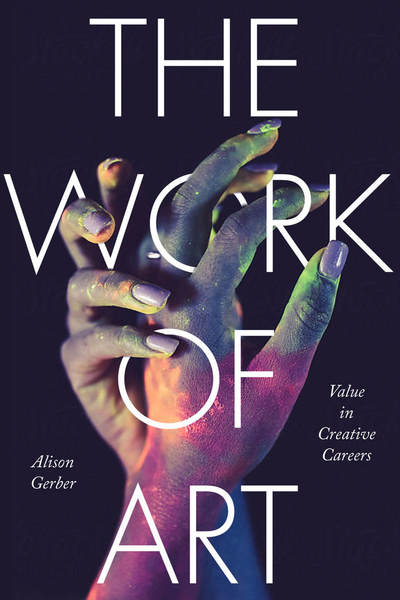
2017
192 pages.
from $25.00
Hardcover ISBN: 9780804798310
Paperback ISBN: 9781503603820
Ebook ISBN: 9781503604032
Artists are everywhere, from celebrities showing at MoMA to locals hoping for a spot on a café wall. They are photographed at gallery openings in New York and Los Angeles, hustle in fast-gentrifying cities, and, sometimes, make quiet lives in Midwestern monasteries. Some command armies of fabricators while others patiently teach schoolchildren how to finger-knit. All of these artists might well be shown in the same exhibition, the quality of work far more important than education or income in determining whether one counts as a "real" artist.
In The Work of Art, Alison Gerber explores these art worlds to investigate who artists are (and who they're not), why they do the things they do, and whether a sense of vocational calling and the need to make a living are as incompatible as we've been led to believe. Listening to the stories of artists from across the United States, Gerber finds patterns of agreements and disagreements shared by art-makers from all walks of life. For professionals and hobbyists alike, the alliance of love and money has become central to contemporary art-making, and danger awaits those who fail to strike a balance between the two.
The stories artists tell are just as much a part of artistic practice as putting brush to canvas or chisel to marble. By explaining the shared ways that artists account for their activities—the analogies they draw, the arguments they make—Gerber reveals the common bases of value artists point to when they say: what I do is worth doing. The Work of Art asks how we make sense of the things we do and shows why all this talk about value matters so much.
About the author
Alison Gerber worked as an artist before earning her Ph.D. at Yale University. Today she is a researcher in the Department of Sociology at Uppsala University in Sweden and writes about the intersection of culture and public life, from tax audits to noise music.
"The Work of Art offers an intimate investigation of the economics of earning a living making art: where the money comes from and where it goes, and how artists justify, to themselves and others, their strategies for supporting their work. Alison Gerber makes a solid contribution to sociology, to economics, and to our understanding of the practicalities of an artistic career."
—Howard S. Becker, author of Art Worlds
"Alison Gerber's The Work of Art is a welcome treatment of how artists develop their self-conceptions and their production practices. This account expands our insight into a cutting edge area of economic and cultural sociology, examining the art world where questions of valuation and good work are highly salient, and provides an exciting approach to how material objects are given value. Personal and powerful, Gerber's work will alter how those who care about the lives of artists think about the role of money and identity in the creative process."
—Gary Alan Fine, author of Everyday Genius
"The Work of Art is an important and much-needed contribution to the neglected question of how artists value their work and time. It is a well-written account that paints a nuanced portrait of art as work and pushes forward sociological thinking about valuation, especially in nontraditional employment."
—Elise Herrala, American Journal of Sociology
"For those who are interested in the practice of art, the art world, and how artists see themselves,The Work of Artprovides a fascinating account with its innovative approach. Revealing that artists ultimately lead 'decommensurated lives,' where they coexist with different and competing values,The Work of Artilluminates how artists make sense of this in their careers and own lives. A wonderful and insightful read not only for artists but for all people who are trying to navigate the values of the market and what it means to be human."––Lee Trapanier, VoegelinView
"The Work of Art is an important contribution to the sociology of art, and may also be of great use as a case study in economic sociology. It is a lively and accessible book, and a useful window into a topic that people rarely discuss with the candor elicited in Gerber's ethnographic interviews."
—Nicholas P. Dempsey, Social Forces